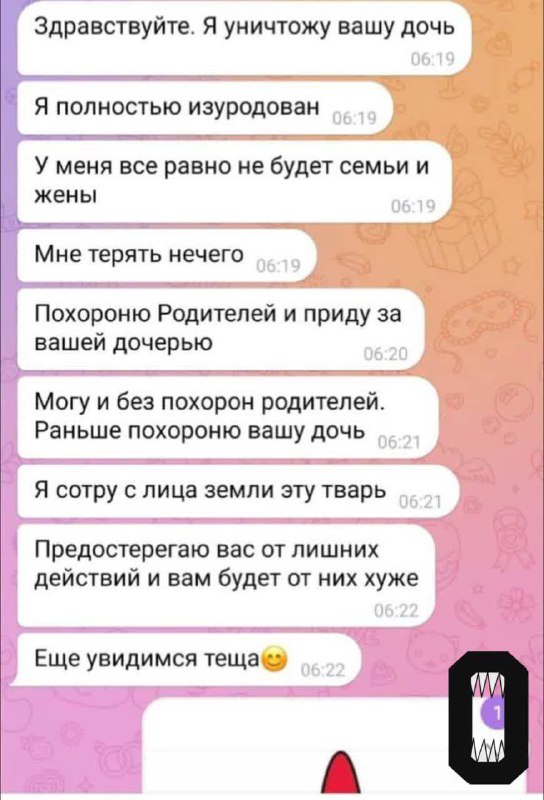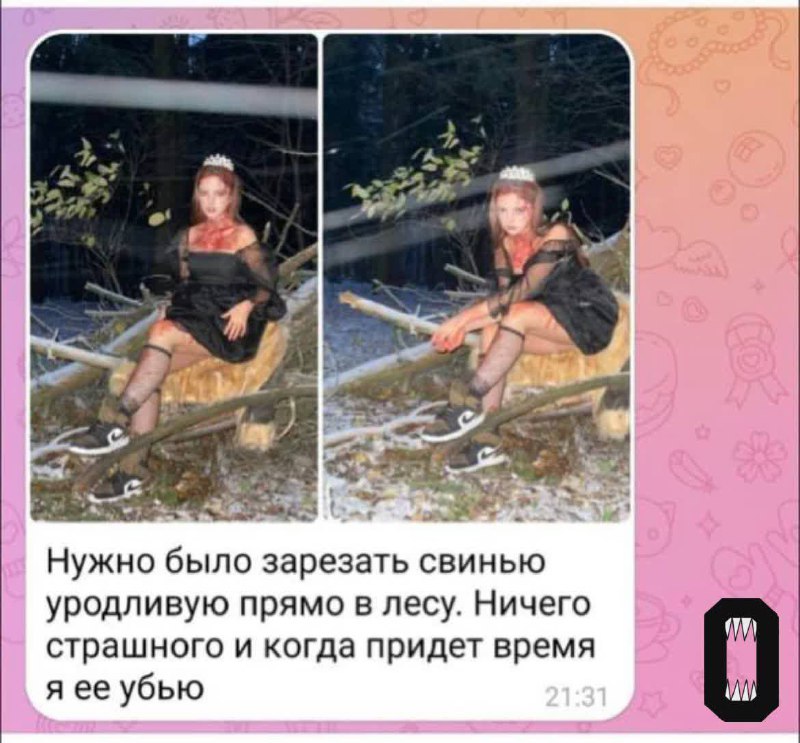In Moscow, police failed to find the stalker of actress and university student Plekhanov, 20-year-old Anastasia Dyatlova, for several months, after which they asked the victim to withdraw the statement “at least at night” so that they could close the case. This was reported by the Telegram channel "Caution, Moscow".
The security forces are asking Dyatlova to sign papers stating that she agrees to close the criminal case on the threat to kill.
According to Dyatlova, an unknown stalker has been chasing her for a year now, he sends insults and direct threats to the actress and her family in private messages. At first, the actress was denied a criminal case, citing the lack of corpus delicti. However, after publicity in social networks, she managed to get a case under the article “Threat to kill”.




For several months of investigation, law enforcement officers have not been able to identify the suspect, and the girl continues to receive threats. At the end of June, she received a call from the police department asking her to withdraw her application.
“They asked me to come at least at night, they said that they could not find the unknown person and therefore they were closing the case, and the prosecutor’s office allegedly returned it and did not allow it to be closed, so my consent is needed for this to happen. I won’t do this, as life threats and harassment continue, I still experience psychological pressure from the unknown, he writes that I won’t be able to hide from him and he will kill me, ”said the actress.
Now the girl is on the set of the series in another country, she is afraid to return home to Moscow.
This is not the first time that a stalker in Russia has gone unpunished. In February, the court found Ivan Matveev guilty under two criminal articles, who had been pursuing Elena S. for more than two years and threatening to kill her, but left him without punishment. Matveev was found guilty under articles on violation of privacy (part 1 of article 137 of the Criminal Code of the Russian Federation) and on threats to kill (part 1 of article 119 of the Criminal Code of the Russian Federation). The court formally sentenced the defendant to 600 hours of compulsory work, but since the defendant had previously been prohibited from certain actions (in particular, he was forbidden to leave his place of residence and use the Internet), the court considered the imposed punishment in the form of compulsory work to be fully served, although Matveev obviously violated both prohibitions.


